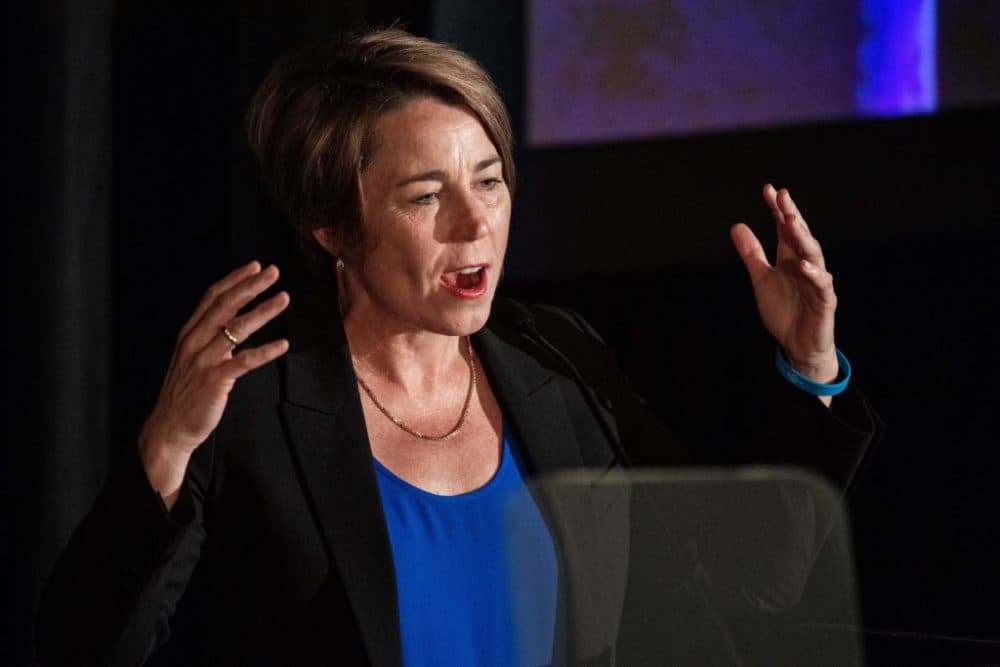Advertisement
Commentary
What Gov. Maura Healey should do about crime

Like others, I’m curious about how Gov. Maura Healey will govern on issues of criminal justice and police reform. There are only hints in her background — as attorney general, for instance, she supported increased accountability for police misconduct. As a gubernatorial candidate, she proposed more efforts to implement police reforms.
But questions remain: Real criminal justice policy entails more than a list of unconnected proposals. It requires a systematic and long-term approach on a number of fronts. Will she expand the prison system or finally allocate prison resources to measures that may address the drivers of crime, like underfunded schools or drug treatment programs or the absence of job opportunities? Will the state continue to waste limited funds by locking up elderly and infirm prisoners, who pose no threat to public safety, or will it fully implement medical parole, and allocate those savings to programs that work to lessen recidivism? How will Healey address profound racial disparities in the criminal legal system highlighted in a 2021 report?
It is way too early to judge this new governor, in office just a month, and the promise of reform she brings to the job.
Still, Healey has great models. In 1983, then-Gov. Michael Dukakis initiated the Governor’s Statewide AntiCrime Council. The council reflected Dukakis’ approach to public safety. Crime was not something solely in the bailiwick of the state police, local police departments, the sheriffs and the Department of Correction. It was, he believed, a problem that touched on the agendas of virtually every state agency in his government — schools, human services, public health, youth services, mental health, labor and employment.
Will the state continue to waste limited funds by locking up elderly and infirm prisoners, who pose no threat to public safety ... ?
Even before imprisonment rates began to skyrocket in the '80s and '90s, Dukakis knew that Massachusetts could not imprison its way out of the problem of crime. Allowing criminal justice issues to be addressed only by law enforcement inevitably leads to proposals for more police resources, more incarceration. It's like the old saying: To a hammer, everything looks like a nail.
Dukakis attended every monthly meeting of the council, even during his presidential campaign (much to the chagrin of the campaign staff). And since he was there, since he was so committed, so were we, the members of the council. (I was a member representing the ACLU.) We often disagreed on policy, but we all appreciated the
complexity of the problem. Public safety needed a long-term view, not just a knee-jerk reaction to a high-profile crime. And it required buy-in from all corners of state government.
The work was extraordinary; no topic was off the table, no matter how controversial. We had presentations on juvenile sex offenders, the prevention of child abuse, children as victims and offenders of domestic violence or gun violence, to name a few. Many reports were put together by working groups staffed by representatives from government, academia or private groups. And those reports were translated into meaningful initiatives, like those systematically addressing violence against women, or fundamentally reexamining all the delinquency statutes.
Advertisement
Imprisonment, rather than one instrument of crime control, became our only response.
Still, Dukakis’ initiatives were felled by Willie Horton. Anyone of a certain age remembers Horton. Furloughed in 1986 from a life sentence for murder, Horton, who is Black, raped a white woman and assaulted her fiancé. Horton’s crime set back criminal justice reform in Massachusetts — and still does to this day. After Dukakis left office, the state’s prison population skyrocketed, falling in line with America’s failed experiment in mass incarceration. Imprisonment, rather than one instrument of crime control, became our only response.
With the 2018 crime bill in Massachusetts, that began to change — but to many, not enough. The bill eliminated mandatory minimums but only for certain low-level nonviolent drug offenses, reduced (but did not eliminate) solitary confinement, and called for the creation of diversion programs, although many are starved for funds. It created a legislative task force to examine the treatment of individuals aged 18 to 24 in the court system and correctional systems, critically important but a small step. Corrections and courts are only pieces of a larger puzzle that involves schools, support for families and jobs.
Boston Mayor Michelle Wu’s latest initiative mirrors Dukakis’ wide-ranging approach. In November, the mayor announced a program to identify at-risk students/families in the schools. The goal was to prevent violence by widening access to mental health services, ramping up programs that fell by the wayside during the pandemic, and
looking at new initiatives including restorative justice programs. Like Dukakis, she convened a task force on youth violence composed of representatives from across some 30+ city departments to work with the Boston public schools. They would meet weekly with public school staff and go through each student, school by school, to discuss outreach.
What will the new governor do? Will she wait to be buffeted by the next horrific crime, and feel compelled to cave into the loudest and most punitive voices? Will she retreat to legislation based on anecdotes about crime? Or will she use her extensive background in criminal justice to create meaningful, systematic change?
